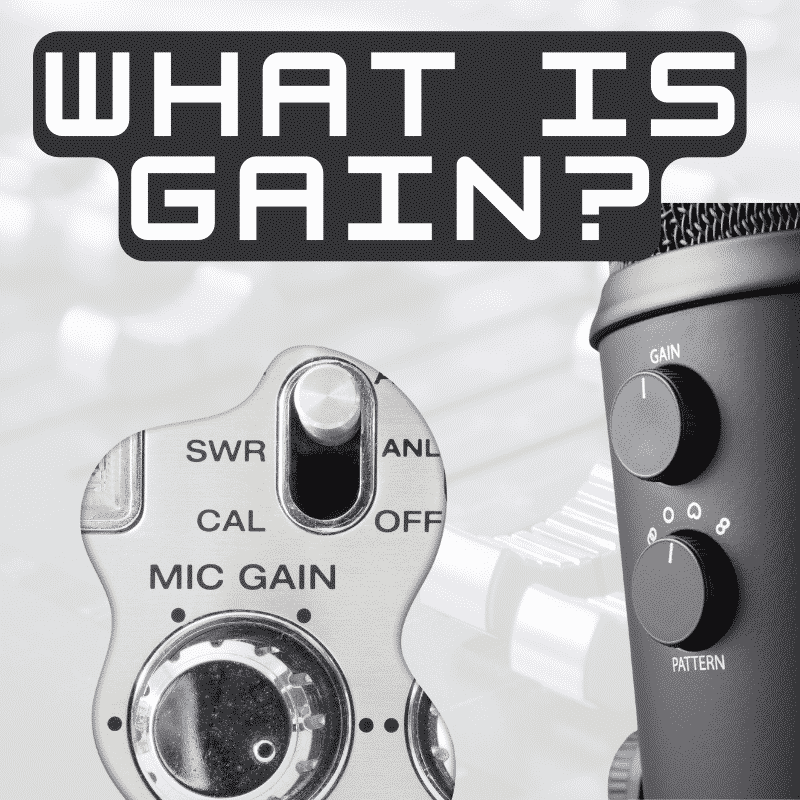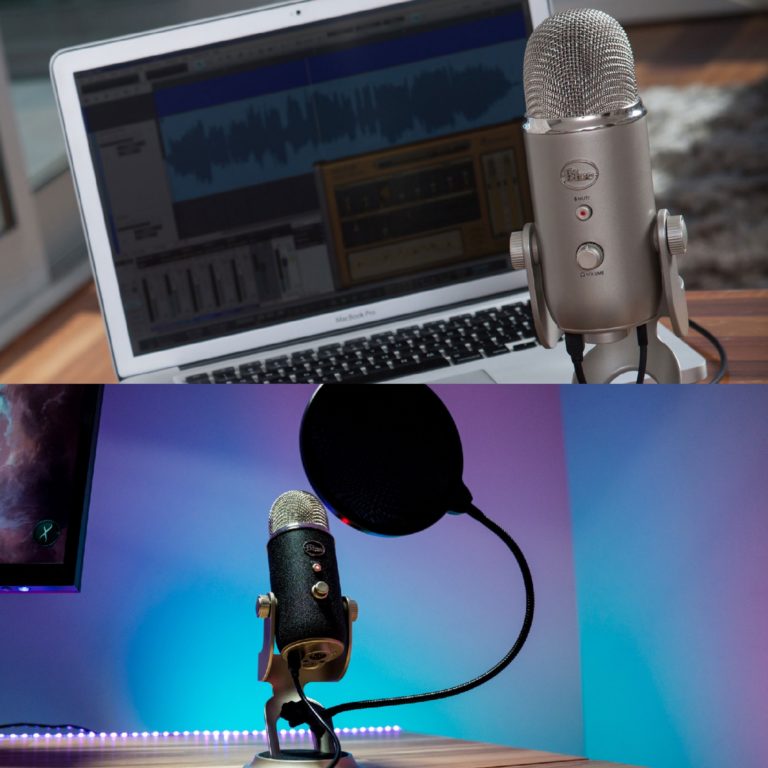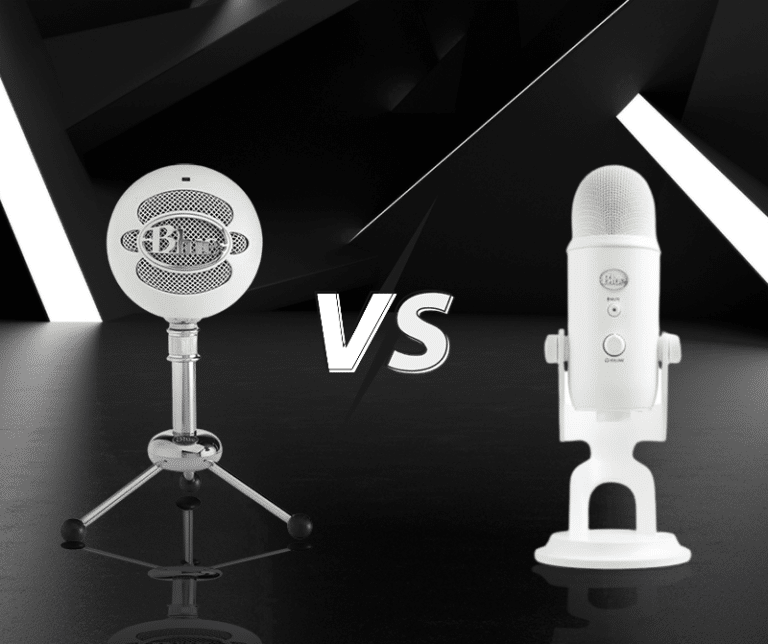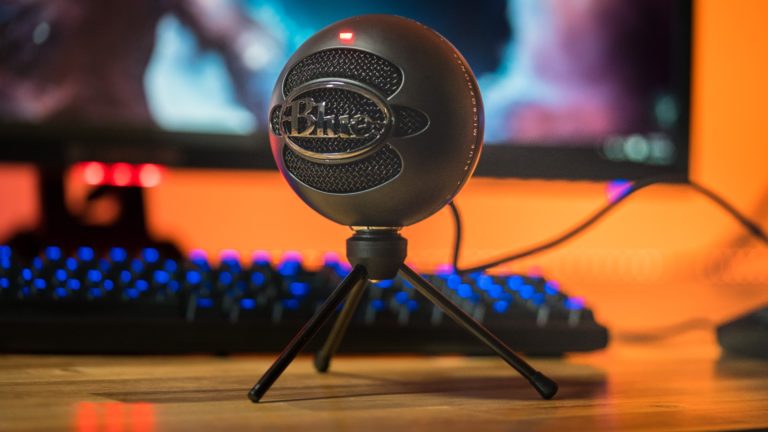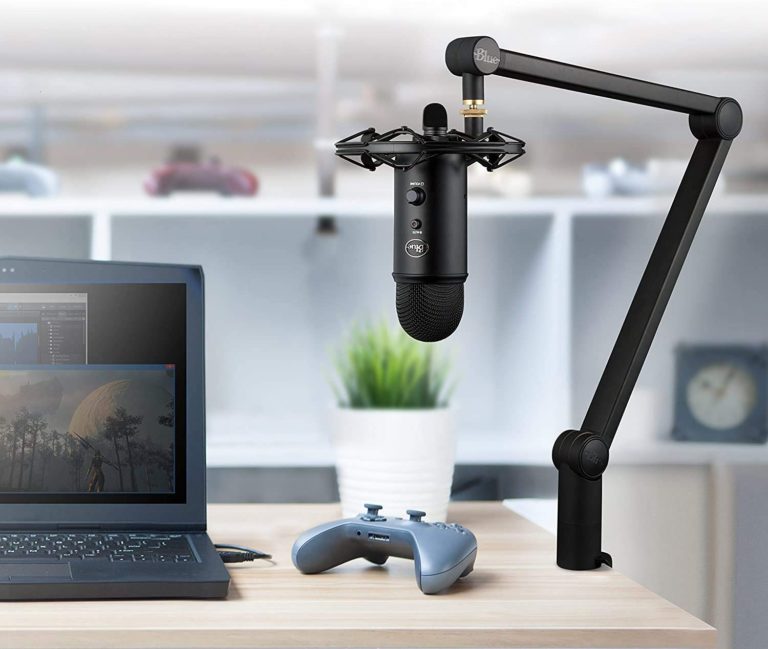What is Gain in Audio? How Gain Affects Speaker Performance
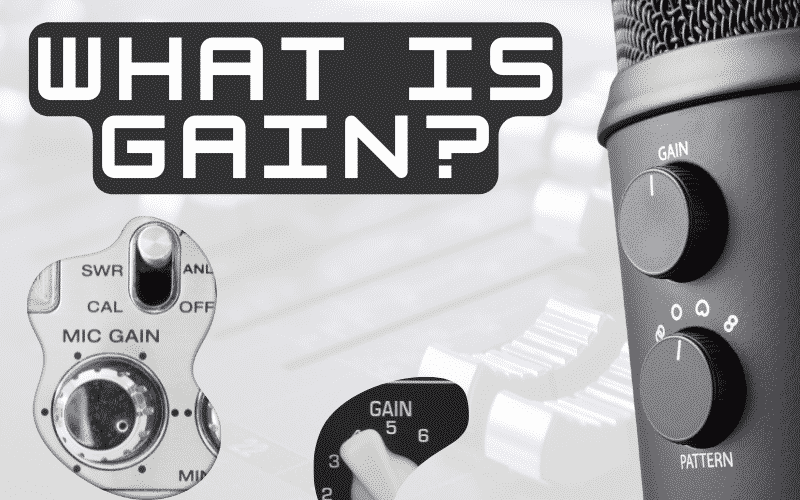
There are many sound settings on an equalizer, such as treble, bass, and mids. However, there are also other settings that can be adjusted, such as “Gain” which has a major impact on how a speaker sounds.
Gain is how loud an input signal is before it enters the amplifier or computer. The higher the gain, the louder the signal. For example, if a microphone has low sensitivity, you will need to turn up the gain so that the amplifier can make the sound louder.
In addition to that, gain controls the tone and not the volume. Gain is also one of the most important elements of good speaker performance because it greatly determines your speaker’s sound quality.
In order to understand what gain is, you need to be familiar with the basics first. This will help you understand the terms used in relation to gain.
Table of Contents
What is Gain?
Back when people used analogs, they would increase the gain of a speaker to make it louder. Nowadays, gain has been developed to be more useful and used to improve the sound quality.
Although gain has been modernly developed, there are some plugins that are still used to replicate analog gear. This means that there are still old properties associated with the new and developed gain in today’s time.
As mentioned, many people still see gain and volume as the same, which are two different sound settings. Gain is for making the input tone louder, while volume is for making the output sound louder.

Understanding Gain in a Simple Example
Let’s say you are giving a speech and people can’t hear you. There are 2 options:
- Speak louder
- Increase the volume on the speaker
Now if you start speaking louder, that is you increasing the gain. The sound will become louder and people in the back will be able to hear you.
However, this might not be the best option as you might start distorting your voice by speaking too loud.

In this case, it would be best to increase the volume of the speaker so that people can hear you without distorting the sound.
But if you only increase the volume on the speaker and you continue talking low, then your voice would not be clear, and again it would be distorted.
It’s the same with gain: if you raise or lower the amount of gain when the volume is an issue or vice versa, your voice will be distorted. As a result, it’s crucial to strike a balance between the two.
How does Gain Work
Gain has the ability to both keep the signals of your speakers limited for better amplification and also the ability to allow the signals to surpass the clean limit for more distortion.
Basically, gain has a major effect on the tone of your sound system, which is why it is important to know how gain works and how you should set the gain on your speakers.
It is also worth noting that gain has a significant effect on the volume of your sound system. However, this does not mean that gain has the same function as volume.
What is Gain Used For?
Gain is used for a lot of purposes in the music industry, but gain is primarily used to achieve the right level of sound output in a sound system.
To begin with, you can use gain as a way to enhance the tone of your microphone that is going into your sound system. Microphones utilize mic level signal which is considered to be a low signal with very little amplitude than instrument signals.
This is the reason why you need to boost the input once you plug in your microphone. Noise floor will take over if you do not give your microphone enough gain to counter it. Not providing your microphone with enough gain will cause the signal to be too close to the noise floor which will result in a low signal to noise floor ratio.
A pre-amp will greatly increase the level of your microphone signal in going to your sound system which will get you a valuable signal when you are recording without the unnecessary noise interfering.
There are only a few Bluetooth speakers in the market that supports gain adjustment. Gain is more commonly found on amplifiers and guitar amplifiers.
What is the Effect of Gain in Audio?
For you to easily understand the effects of gain, here are the two main effects of gain on your speakers or sound system setup.
Low Gain Effect
Having your gain set to low will ensure that the maximum possible gain does not go beyond the clean limit of the amplifier or pre-amp you are using, resulting in a lot of amplification with minimal distortion.
High Gain Effect
On the other hand, having a high gain will result in the sound signal quickly going beyond the clean limit of your amplifier or pre-amp. The majority of the signal gained will result in distortion.
Is Gain Audio Important?
As you have read, gain is very important for amplifiers, speakers, and audio systems because it greatly affects the performance of your channels.
It is also worth mentioning that correctly setting your gain to the right amount will hit the optimal levels of your analog to digital converters.
Keep in mind that gain also has a major effect on the tone of your sound system which is also one of the many reasons why gain is very important in the music industry.
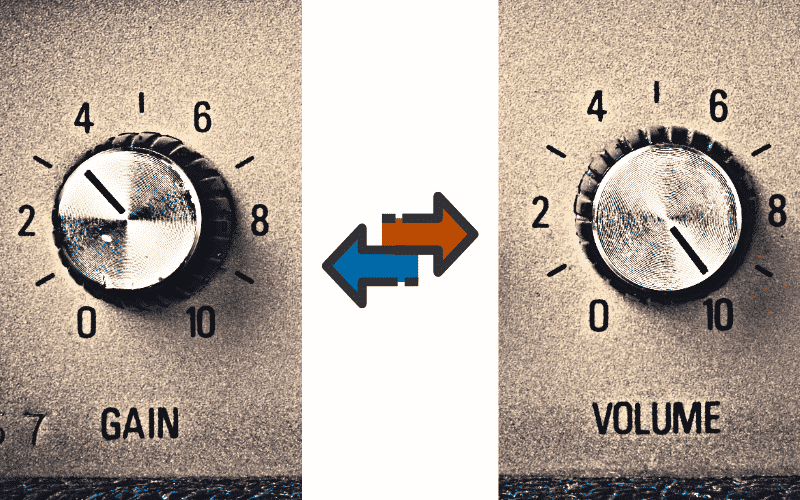
Are Gain and Volume the Same?
Gain and volume are two different sound settings. People confuse them since both have the ability to turn up and down just like with bass, treble, and mids. But gain and volume significantly have similar characteristics compared to the other settings but they are entirely two different adjustments.
Basically, volume refers to the control of loudness of the sound output of an audio system. Volume has nothing to do with sound quality since it’s only to increase or decrease the loudness of a speaker.
On the other hand, gain increases the loudness inside your audio system, which ultimately affects your speaker’s sound quality.
Increasing the gain on your speaker will result in a louder sound output but without any distortion. Increasing the gain further on your speaker will eventually reach the volume limit of the amplifier or speaker.
To summarize, the volume does not have any effect on the tone of your sound system because volume mainly focuses on the adjustment of how loud or soft your music volume is whereas gain controls tone, and it also has a significant effect on the volume of your speaker as well.
Are Gain and Distortion the same?
Gain and distortion are commonly found on guitar amplifiers rather than Bluetooth speakers but just like with gain and volume, gain and distortion are also different from one another.
They are different because you can add gain without distorting the sound output. Adding more gain to your speaker will make it sound louder, but gain and distortion are two different adjustments.
As mentioned, increasing the gain on your amplifier or speaker will result in a louder sound output without distortion whatsoever. Further increasing the gain will hit the limit of your speaker or amplifier. You can keep on multiplying the gain factor on your speaker setup but this will eventually lead to distortion.
The modification of the sound wave that reaches the top and bottom of the sound chart creates distortion since your speaker or amplifier is beyond the headroom limit.
Most Bluetooth speakers do not have a way to control the gain, but amplifiers do. This means that you can adjust how loud the incoming sound is and also how distorted it is.
You would also find gain knobs on USB microphones like the Blue Yeti. On these microphones the higher the gain would be the more likely the sound would be distorted. However, with lower gain, the microphone might not be picking up enough sound.
Final Thoughts
Knowing what gain is will help you set up your music system better. If you want good sound quality from your sound system, it is important to set the gain correctly.
Setting the gain too high can result in the signal quickly surpassing your amplifier’s clean limit, causing it to distort. On the other hand, lowering the gain will keep the signal within its limits and avoid it from surpassing them, resulting in more amplification with little to no distortion.
The amount of gain applied will vary from person to person. Because you understand the influence of gain on your sound system, you can now better control the volume settings on your speakers.

